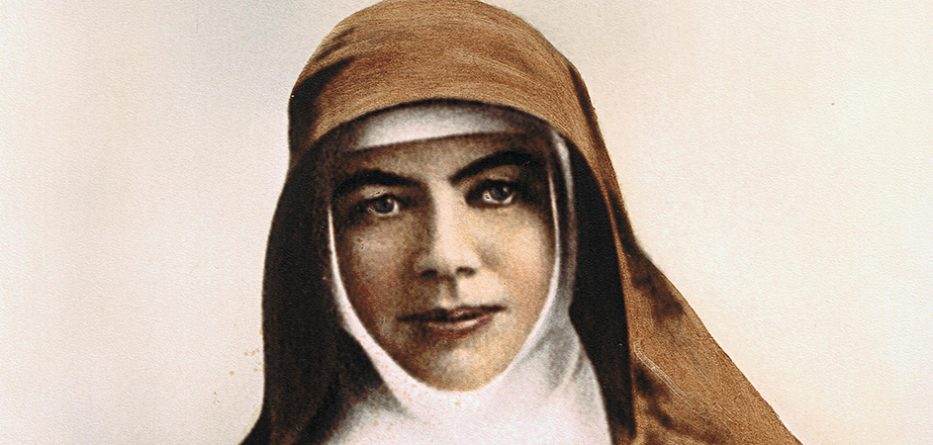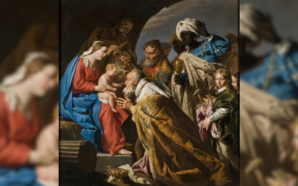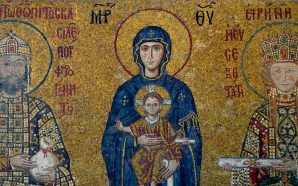Mary Helen MacKillop was born on 15 January 1842 in Melbourne. She was the eldest of eight children. As a young woman she worked as a governess and a teacher, but she yearned for religious life. In 1860, she placed herself under the direction of Fr. Julian Tennyson Woods and he encouraged her to found a new religious order with him, the Sisters of St Joseph of the Sacred Heart.
The new order was established in Adelaide in 1866 with the Sisters encouraged to live simply as the poor live. Their ministry would be the education of the poor children. Bishop Lawrence Shields of Adelaide approved and strongly supported this new Australian order of Sisters and it grew rapidly.
Mary travelled extensively around Australia and New Zealand, setting up schools as well as founding convents. She was determined that the Rule she and Fr Tennyson Woods had drawn up for her Sisters would mean that the Sisters be self-governed. However, there were some Australian priests and bishops very hostile to Mary’s insistence on independence, as well as her insistence that the Sisters reject any federal funding for her schools. She also upset many by her reporting of an Irish priest for sexual abuse.
Mary suffered much with regard to the clergy, including Bishop Shiels, so supportive in the beginning but later influenced negatively toward her by some priests. Bishop Shiels wanted to change the constitutions so that the Sisters would be under the control of each diocese and not under central government. Mary respectfully refused to accept these new constitutions.
On 22 September 1871, Mary was excommunicated but not, as she first thought, because of her refusal but because of another ‘disobedience’. On the day before the excommunication, Mary was asked by the Bishop, through a priest, to go to St John’s, 80 kilometres away, and to leave the following morning. In words carefully chosen, Mary said she could not leave with the situation the way it was regarding the possibility of new constitutions. It was the hesitation, not refusal, that Bishop Shiels reacted to, excommunicating her.
On 23 February 1872, Bishop Shiels lifted the ban of ex-communication. He had had bad health for a number of years and knew he was dying. During this time, he gradually became aware that he had been manipulated by some priests close to him. Mary didn’t ever speak negatively about the bishop during her ex-communication either privately or publicly, and even as a number of clergy continued to vilify her.
The remainder of her life was marked by clashes with priests and bishops of the Australian church. After an 1873 meeting with Pope Pius IX, however, she won papal approval for the Josephite rule, with modifications that relaxed the degree of poverty imposed upon the Sisters. She continued to meet with hostility from a number of priests and bishops, and the Sisters’ work was circumscribed in certain cities. In 1885, she was removed as superior general, though she was reinstated in 1899 and remained at the head of the order until her death. In 1901, Mary suffered a stroke in Sydney and died in 1909.
I opened the annals of the life of St Mary MacKillop with a certain degree of anticipation. The fact of her being Australian could be of help to us in reading even more accurately, the writing on the wall of her life in the light of our own position as a Church in the Australia of today.
Mary was a woman of deep prayer and closeness to God. As with the other women we have encountered in these reflections, her courage and tenacity came from this relationship with Jesus, as did the inspiration for her ministry.
Mary had to fight hard and courageously to defend the vision she so passionately believed in. When Mary reported an Irish priest for sexual abuse, she met with an even stronger resistance to her mission, to her quest for independence and to what was perceived as her presumption and lack of submission. Her willingness to defend her position, and the degree of autonomy that her Sisters had, were undoubtedly threatening to some clergy. As is always the way, not all the Australian clergy were as defensive, but a good many were.
Our own community, founded in 1848 by Bede Polding OSB, experienced similar persecution from some of the Australian priests and bishops. In our archives here at Jamberoo, thanks to the kindness of the Sisters of St Joseph, we have a copy of a letter Mary MacKillop wrote to her own mother in which she tells her mother that she stayed with the Benedictine nuns at our monastery Subiaco, then situated at Rydalmere in Sydney. She received much help and encouragement from our prioress at that time.
What stands out in her life story is the extraordinary capacity she had to keep going in the midst of extreme resistance, and even persecution, from clergy in an era when women mostly stayed quiet. What drove her to this level of courage? How did she continue amidst such loneliness and hardship, most especially when she was excommunicated? And what does this have to say to us today? Where is God in her story, the God who wants to show us a way forward? Are we hearing correctly? Are we even listening? These are the questions Mary’s life sets before us today. Are we capable of her level of discernment?
Sr Antonia Curtis OSB is a member of the Benedictine Sisters community at Jamberoo Abbey, NSW.
You can read the full series of six reflections by Sr Antonia Curtis:
- Gifts from the past – St Teresa of Ávila
- Gifts from the Past – St Scholastica of Nursia
- Gifts from the Past – Saints Hilda of Whitby and Hildegard of Bingen
- Gifts from the Past – St Catherine of Siena
- Gifts from the past – St Mary of the Cross MacKillop
- Gifts from the past – Conclusion








